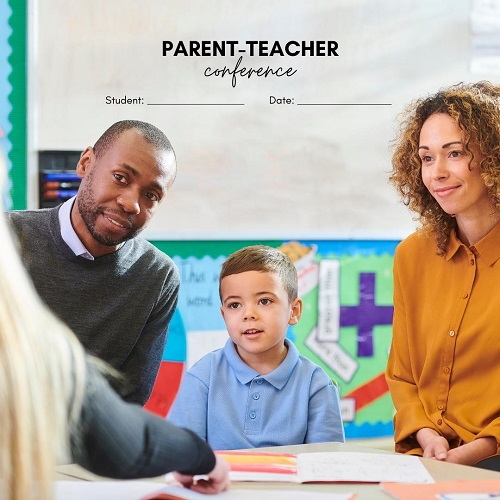How to Build Healthy Relationships with Your Kids’ Teachers
by Kathy Slattengren, M. Ed., Priceless Parenting (sign up for monthly parenting newsletter and receive 20+ printable charts for kids and parents)

Whether your children are in preschool, high school or somewhere in between, their teachers play a major role in their lives. Building positive relationships with their teachers will help your kids experience more success in school.
Your children need their teachers and those teachers need you. They simply cannot do the best for your kids without your help.
Noticing Problems at School
The advantage your children’s teachers have is that they work with many kids the same age and are good at noticing when a child is falling outside the norms either academically or socially. The advantage you have is that you know your child much better than any teacher. Both you and the teacher each contribute critical information in understanding your child.
When a teacher comes to you discuss a problem with your child, it’s often a difficult conversation for both of you. As a parent, you are naturally sensitive to any perceived negative feedback about your child. It’s hard to hear your child is struggling without feeling defensive.
Staying clear headed and avoiding being defensive is easier said than done. One teacher described an especially challenging conference she had with Mason’s mom. Mason was failing in a number of subjects primarily due to missing homework. Her goal was to work together to come up with a plan to help him be more successful in school.
Unfortunately Mason’s mom got angry and defensive. She blamed the teacher for Mason’s problems saying things like:
- “Mason didn’t have trouble in school last year. You should talk to his teacher from last year to find out how she worked with him.”
- “Mason told me you pick on him because he doesn’t turn in his homework.”
- “He’s bored. He doesn’t do his work because he is simply not challenged by the work.”
- “It’s your fault if he’s failing. If your class was more interesting, he would pay attention.”
The teacher also offered to tutor Mason during recess or after school but the mom did not think any of these ideas would work well. Instead she threatened to go the principal to report the teacher. Not exactly a recipe for building a positive relationship!
Working with the Teacher
Participating in a difficult conversation with your child’s teacher isn’t easy. In the book
Crucial Conversations: Tools for Talking When Stakes Are High, the authors state “
Each of us enters conversations with our own opinions, feelings, theories, and experiences about the topic at hand. This unique combination of thoughts and feelings makes up our personal pool of meaning. … When two or more of us enter crucial conversations, by definition we don’t share the same pool. Our opinions differ. I believe one thing; you another. I have one history; you another.
People who are skilled at dialogue do their best to make it safe for everyone to add their meaning to the shared pool – even ideas that at first glance appear controversial, wrong, or at odds with their own beliefs.”
The best decisions are made when everyone involved adds to the shared pool of meaning. In this case, you, your child and your child’s teacher all have important information to add to this shared pool of meaning.
When discussing a problem with your child's teacher, your strong emotions may urge you to either fight or flight. For example, Mason’s mom went into fight mode and did little to contribute to the shared pool of meaning.
The
Crucial Conversations authors suggest one way to override the fight or flight urge is to challenge yourself to consider questions like:
- What do I really want for myself?
- What do I really want for my child?
- What do I really want for the relationship with my child’s teacher?
Focusing on these questions will help calm your emotions down. The questions will also help engage your thinking so you can continue to positively participate in the conversation.
Working Together to Hold Kids Accountable
Some kids are able to successfully manage their own homework and projects while others need more guidance. No matter what grade your children are in, they need to take primary responsibility for their school work.
However, when kids are disorganized or motivated to do anything but homework, it is essential for the teachers and parents to work together. One teacher described the success he’s had working with parents to turn around situations where students were falling behind.
He agreed to let parents know when their children were behind in turning in a couple assignments. The parents helped by reinforcing with their children at home the importance of getting their homework done on time. The partnership he has with these parents helped get their children on track before they were too far behind to easily catch up.
It’s useful to remember that both you and the teacher have a common goal of helping your children do their best in school. When you can work together to find solutions, your children really benefit.